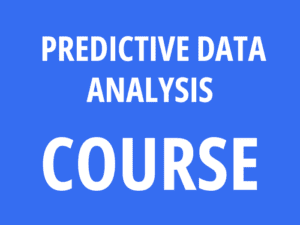Can AI Strengthen Australia’s Electoral System and Democracy?
Imagine a future where Australians no longer cast votes: their AI representatives have already done it. This AI doesn’t just vote; it continuously analyses policies, tracks parliamentary debates, and negotiates with other AI representatives to ensure that government decisions align with citizens’ interests.
At first glance, this vision seems distant. However, the Australian Parliament acknowledges a crucial issue: the current regulatory system is inadequate to address AI’s risks in elections. Gaps in regulating AI-generated misinformation, deepfakes, and electoral influence expose democracy to manipulation. Could AI-driven political representation offer a solution?
César Hidalgo, in How Humans Judge Machines, proposes an AI-driven democracy where personal AI agents act as political proxies. Instead of voting every few years, Australians would have AI representatives dynamically engaging with governance, making policy decisions based on individual values and preferences.

This raises a fundamental question: Could AI representation strengthen democracy, enhance engagement, and improve transparency—or would it undermine electoral integrity and human decision-making?
AI Regulation Gaps in Australian Elections: Challenges and Opportunities
The Australian government recognizes that its electoral system cannot handle AI’s impact. The 2024 proposals paper on AI regulation highlights critical gaps:
- AI manipulating elections or eroding public trust
- The lack of legislative tools for the Australian Electoral Commission (AEC) to detect and regulate AI-generated misinformation
- The absence of specific laws addressing AI-driven deepfakes in political campaigns
- The narrow legal framework, which prevents the AEC from intervening in misleading AI-generated political content
These challenges expose a deeper issue: Australia’s democratic processes, built on periodic elections and human-driven representation, cannot keep pace with AI’s evolving capabilities. Instead of allowing AI to disrupt democracy, could it be harnessed to enhance participation, improve policy-making, and counter misinformation?
AI Political Representation: A Solution to Electoral Risks
AI-driven political representation could address the gaps identified by the Australian Parliament:
- Preventing Misinformation and Deepfakes
AI-driven democracy could introduce transparency mechanisms to verify political content, fact-check claims, and counteract AI-generated misinformation. Instead of allowing AI to manipulate public perception, a regulated AI political system could protect Australians from deceptive election tactics. - Enhancing Electoral Integrity
The AEC has limited authority to address AI-generated disinformation. AI representatives could act as real-time digital watchdogs, ensuring that policies are based on verified facts rather than misleading narratives. - Boosting Political Participation
Despite compulsory voting, many Australians feel disconnected from politics. AI representation could engage citizens continuously, tailoring policy insights to individual preferences and ensuring their voices are heard beyond election day. - Driving Evidence-Based Policy Decisions
AI can process complex policy data, simulate long-term impacts, and reduce the influence of populism and short-term political maneuvering. This could result in a more data-driven, accountable, and responsive government.
Risks and Challenges: Who Should Control AI in Democracy?
While AI in politics presents solutions, it also raises ethical concerns:
- Who Should Govern AI Decision-Making?
Would Australians train their own AI models, or would government-approved models be enforced? Would AI remain neutral, or would corporate and political interests shape its algorithms? How can transparency be ensured in AI-driven decision-making? - Addressing AI Bias in Political Decisions
Even advanced AI systems inherit biases from their training data. If AI were to make political decisions, would it reinforce systemic inequalities, or could it be structured to promote fairness and inclusivity? - AI vs. Human Judgment in Crisis Situations
Political decision-making requires ethical reasoning and empathy. Would AI navigate crises such as national security threats, economic recessions, or ethical dilemmas effectively? Would AI assess long-term consequences or focus only on immediate solutions? - Will Australians Trust AI in Politics?
While Australians are frustrated with traditional politics, democracy values participation, fairness, and human accountability. Would Australians trust an AI to make political decisions? Would they accept AI recommendations if they opposed public sentiment?
The Future of AI in Australian Politics: A Hybrid Model for Smarter Governance
Rather than replacing human politicians, a hybrid AI-assisted democracy could address electoral vulnerabilities while maintaining human oversight. Potential applications include:
- AI-powered transparency tools to verify political claims and track electoral integrity
- AI-assisted direct democracy, allowing Australians to engage in real-time policy decisions
- AI-enabled policy research, improving evidence-based governance and reducing bureaucratic inefficiencies
This model would keep humans in control while leveraging AI to enhance governance, reduce corruption, and improve efficiency.
Conclusion: Can AI Secure Australia’s Electoral Future?
The Australian Parliament acknowledges AI’s risks to democracy. Instead of waiting for AI-driven disruptions, Australia has an opportunity to lead the world in AI-assisted democratic governance.
Key Takeaways:
- AI could help Australians navigate political complexity and counter misinformation.
- AI-driven political representation could fill regulatory gaps while maintaining democratic integrity.
- AI must remain transparent, accountable, and free from corporate or government manipulation.
- AI should complement, not replace, human decision-making in governance.
Would You Trust an AI to Vote on Your Behalf?
As AI evolves, Australians must decide:
1- Can AI-assisted governance build a stronger democracy?
2- Or does democracy require human imperfections, debate, and struggle?
The debate over AI and the future of Australian democracy has only begun.
Read more about the same subject:








